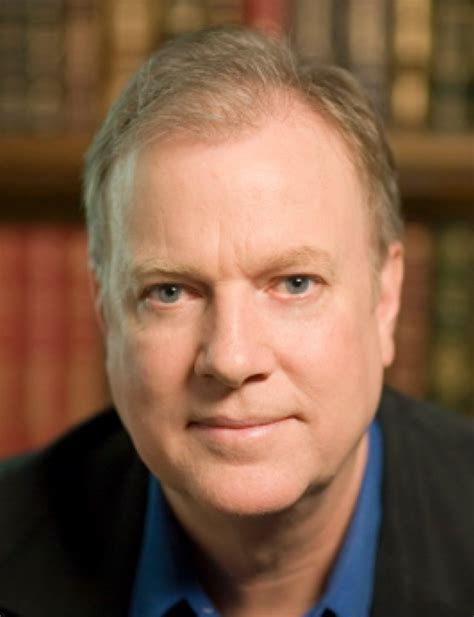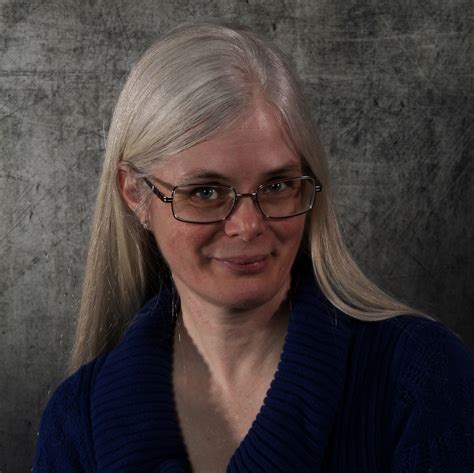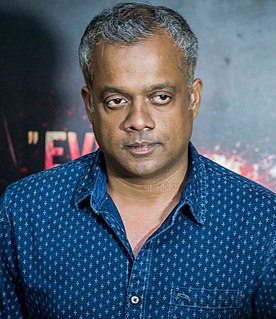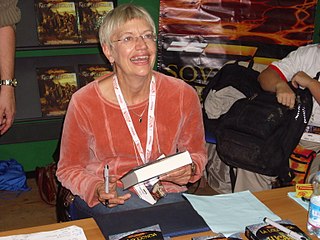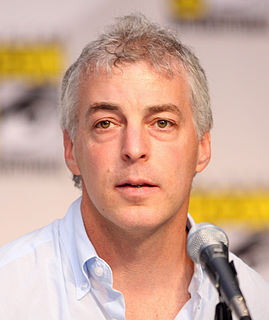A Quote by James Scott Bell
A writing teacher once told me that the most successful movies and books were simple plots about complex characters. You should be able to articulate your concept in a couple of lines.
Related Quotes
I picked up one of the books and flipped through it. Don't get me wrong, I like reading. But some books should come with warning labels: Caution: contains characters and plots guaranteed to induce sleepiness. Do not attempt to operate heavy machinery after ingesting more than one chapter. Has been known to cause blindness, seizures and a terminal loathing of literature. Should only be taken under the supervision of a highly trained English teacher. Preferably one who grades on the curve.
The earliest influence on me was the movies of the thirties when I was growing up. Those were stories. If you look at them now, you see the development of character and the twists of plot; but essentially they told stories. My mother didn't go to the movies because of a religious promise she made early in her life, and I used to go to movies and come home and tell her the plots of those old Warner Brothers/James Cagney movies, the old romantic love stories. Through these movies that had real characters, I absorbed drama, sense of pacing, and plot.
I really feel that actors should really know who they are as characters; they should really study their lines; they should be prepared; but once they come to set, for me the most exciting way to shoot a scene is to really find it, really kind of grind your way through it, until you feel like you have something that you can put together.
Once I heard about the electronic voting machines, and how they weren't gonna be audited, and no one would be able to go in and verify what the votes were. And then the exit poll thing - wasn't that kind of weird? How the exit polls didn't match up to the voting... I feel like, you know, they dropped a couple lines of code in here and there, and swung a couple states in their direction.
That afternoon he told me that the difference between human beings and animals was that human beings were able to dream while awake. He said the purpose of books was to permit us to exercise that faculty. Art, he said, was a controlled madness… He said books weren't made of themes, which you could write essays about, but of images that inserted themselves into your brain and replaced what you were seeing with your eyes.
A man's bookcase will tell you everything you'll ever need to know about him," my father had told me more than once. "A businessman has business books and a dream has novels and books of poetry. Most women like reading about love, and a true revolutionary will have books about the minutiae of overthrowing the oppressor. A person with no books is inconsequential in a modern setting, but a peasant that reads is a prince in waiting.
It's quite interesting, looking back at the first one [film about Harry Potter], nobody knew whether or not it was going to be successful as a film. The books were of course already very successful, but that's happened before, where the books were successful and the films weren't at all. But it turned out that they were.
What's actually amazing is that, after a couple of years of living with characters and writing characters and talking about characters, as we sit in the writers room and break episodes, it strikes you, every once in awhile, that you're talking about a character that's played by the same actor, who you've been talking about forever. We talk about a character dying, so you get emotional, and then you realize, "Oh, but wait, that actor is still on the show."
Paul Simon once said that a songwriter's supreme challenge was being complex and simple at the same time-writing songs with lasting depth that are also simple enough to be memorable. Jimmy Van Heusen was a master at this kind of song. His music was complex, with deeply rich chord changes any jazzman can embrace, but also possessed catchy, crystalline melodies of exceeding sing-ability. His songs were meant to be sung, not just listened to, and they were sung by the best, with Frank Sinatra and Bing Crosby at the top of that list.
The Zen way of calligraphy is to write in the most straightforward, simple way as if you were a beginner, not trying to make something skillful or beautiful, but simply writing with full attention as if you were discovering what you were writing for the first time; then your full nature will be in your writing.
